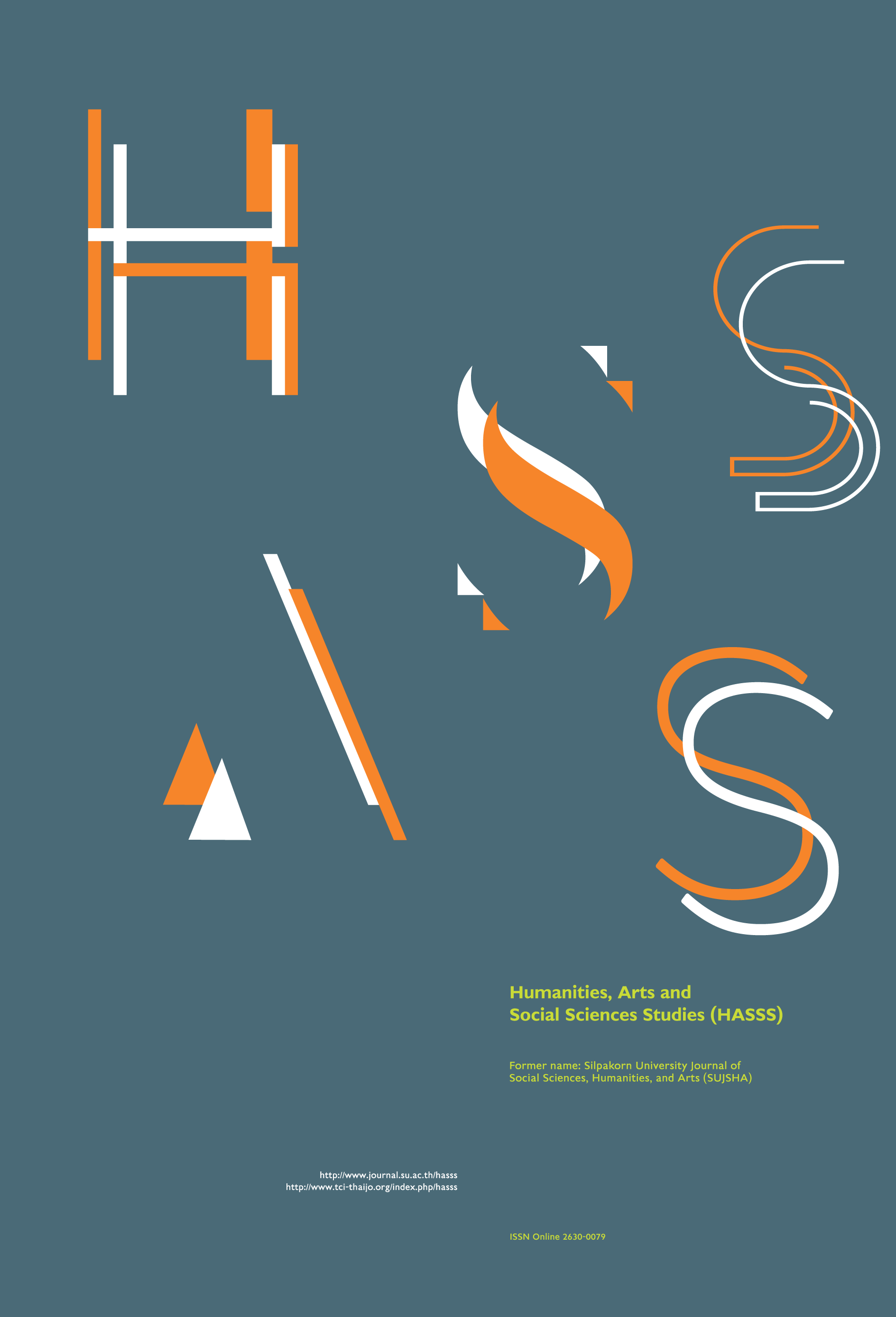Instructional Models of Social Studies Teachers to Development of Critical Thinking Skills for Living in the 21st century
Main Article Content
Abstract
The global society in the 21st century is known to be a circumstance lending to rapid changes. This affects the way of life throughout the globe and causes both positive and negative impacts. For this reason, in order to survive in this society, it is essential that learners in the 21st century possess critical thinking skills in order to be able to analyze and synthesize the information which has been received and be able to adapt themselves to the recent circumstance. Therefore, the instructional models of social studies teachers which aim to develop critical thinking skills for living in the 21st century has played a significant role in education and the development of learners. Education is an important foundation to prepare learners to live in the society, to develop and become knowledgeable and skillful people, and to have positive attitudes that will enable them to live with other people as a global citizen in a peaceful society. It is vital to bring the curriculum up to date and plan to produce and develop human resources in the country based on every social dimension and the tendencies of future changes resulting in efficient and sustainable development. Thus, social studies teachers should be aware of the changes in 21st century and design an instruction to promote skills for living in the 21st century. For this reason, promoting critical thinking skills becomes more important in education in the 21st century education. These instructional models consisted of 1) the instruction emphasizing on cognitive domain in order to create the body of knowledge leading to conceptual skill 2) the instruction focusing on psycho-motor domain in order to practice practical processes leading to the development of overall skills 3) the instruction with effective domain to create the value of applicable development 4) the instruction with process skills leading to practical development 5) the instruction with integration to integrate every knowledge.
Downloads
Article Details
All rights reserved. Apart from citations for the purposes of research, private study, or criticism and review,no part of this publication may be reproduced, stored or transmitted in any other form without prior written permission by the publisher.
References
Bloom, B. S. (1956) Taxonomy of Educational Objectives, the Classification of Educational Goals; Handbook I: Cognitive Domain. New York, NY: David McKay Company.
Bruner, J., Goodnow, J. J. and Austin, G. A. (1967) A study of thinking. New York, NY: Science Editions.
Clarke, J. H. (1991) Using visual organizer to fours on thinking. Journal of Reading 34(7): 526–534.
Dave, R. (1967) Psychomotor domain. Berlin: International Conference of Educational Testing.
Ennis, R. H. (1985) A logical basic for nursing critical thinking skills. Education Leadership 6(4):45–48.
Ennis, R. H. and Milman, J. (1985) Cornell Tests of Critical Thinking: Theory and Practice. Pacific Grove: Midwest Publications.
Gagné, R. M. (1985) The Conditions of Learning. New York: Holt, Rinehart & Winston.
Issarangkul na Ayuthaya, W. (2012) Social Studies Teachers and Skill Development Students. Bangkok: Chulalongkorn University.
Johnson, D. W. and Johnson, R. T. (1974) Instructional goal structure: Cooperative, comperative, or individualistic. Review of Education Research 44: 213–240.
Jones, B. F., Pierce, J. and Hunter, B. (1989) Teaching students to construct graphic organizers. Educational Leadership 46(4): 20–25.
Joyce, B., Weil, M. and Calhoun, E. (1996) Model of Teaching (7th ed.). Boston: Allyn and Bacon.
Joyce, B., Weil, M. and Showers, B. (1992) Model of Teaching. Boston: Allyn and Bacon.
Lorsuwankul, W. (2003) Factors Affecting Thinking on Nursing Students Faculty of Nursing Burapha University. Nursing Journal of Nursing Faculty Burapha Univerisy 11(3): 46–48.
Lueboonwatchai, O. (2000) Thinking Critically. Bangkok: Thana Press and Graphic.
Manager Online. (2018) The World Top 20 Education Poll in 2018. [Online URL: https:// www.manager.co.th/Campus/ViewNews.aspx?NewsID=9580000040642.] accessed on October 15, 2018.
Moonkam, S. (2004) Teaching Strategies of Critical Thinking Skills. Bangkok: Pabpim.
Nirunthawee, S. and Phumman, P. (1999) The Cycle of 4MAT to Promote the Attributes of Excellent Moral Happy. Nonthaburi, TH: SSR Printing Partnership Limited.
Panitch, W. (2012) The Methods to Promote Learning for Students in the 21st Century. Bangkok, TH: Sodsri-Saridwong Foundation.
Panitch, W. (2014) Learning in 21st Century. Bangkok: Chulalongkorn University.
Pornkul, C. (2011) Student-Centered Instructional Model. Bangkok: Chulalongkorn University.
Shaftel, F. and Shaftel, G. (1976) Role Playing for Social Values: Decision making in the social studies. Englewood Cliffs: Prentice-Hall.
Simpson, D. (1972) Teaching Physical Education: A system approach. Boston: Houghton Mufflin.
Sinthaphanon, S. (2015) The Instruction of Teachers in the New Era to Develop Learners’ Skills in the 21st Century. Bangkok, TH: 9119 Technique Printing Partnership Limited.
Sinthaphanon, S., Wanlernluk, W. and Sinthaphanon, P. (2012) Thinking Skill Development Based on Educational Revolution. Bangkok: Technique Printing.
Sukhothai Thammathirat Open University. (2011) Principles of Providing Learning Experinece on Social Studies (Unit 1-5). Nonthaburi: Sukhothai Thammathirath Open University.
Snyder, M. (1993) Critical thinking: A foundation for consumer-focused care. The Journal of Continuing Education in Nursing 24(5) :206–210.
Taba, H. (1967) Teacher’s Handbook for Elementary Social Studies. Boston: Addison-Wesley.
The Secretary’s Commission on Achieving Necessary Skills (SCANS). (1992) Learning a living: A blueprint for high performance. U.S. Department of Labor. [Online URL: https://wdr.doleta.gov/SCAN/lal/lal.pdf] accessed on October 11, 2011.
Thongsukdee, R. (2001) Preparation vision and social studies teacher development. Academic Journal 5(2): 73-74.
Torrance, E. P. (1962) Guiding Creative Talent. Engewood Chiffs: Prentice-Hall.
Watson, G. and Glaser, E. M. (1964) Watson-Glaser Critical Thinking Appraisal Manual. New York: Brace and World.


